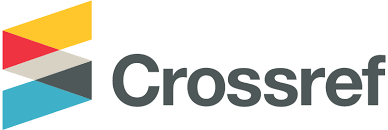Urgensi Implementasi Konsep Ekonomi Biru dalam Tata Kelola Sektor Kelautan Indonesia
Abstract
Sebagai sebuah negara kepulauan, maka pembangunan bidang kelautan harus dijadikan arus utama dalam kebijakan pembangunan di Indonesia. Penelitian ini bertujuan untuk menguraikan alasan urgensi penerapan prinsip ekonomi biru dalam pengaturan tata kelola kelautan Indonesia. Hal ini menjadi penting dikarenakan kebijakan Pemerintah hendaknya selalu berorientasi kepada pembangunan kelautan yang berkelanjutan. Penulisan artikel ini menggunakan metode penelitian kualitatif untuk mengukur seberapa besar upaya yang telah dilakukan para pemangku kepentingan sehubungan dengan pengelolaan kelautan yang berbasis ekonomi biru. Hasil penelitian menunjukkan bahwa ekonomi kelautan yang berbasis ekonomi biru dapat menjadi andalan dalam peningkatan pendapatan Indonesia di masa yang akan depan sehingga dapat mewujudkan diri sebagai Poros Maritim Dunia. Oleh karena itu, Pemerintah Indonesia memiliki kesempatan dan kewajiban untuk menata ulang tata kelola kelautan nasional yang selaras dengan alam. Temuan dari hasil penelitian ini berupa strategi langkah kebijakan yang dapat dijalankan, yaitu dengan cara menselaraskan dan mengutuhkan tatanan hukum laut; menguatkan dan mensinergikan kelembagaan dan kerjasama kelautan; mengutuhkan dan mengintegrasikan data dan informasi laut; dan menumbuh kembangkan riset dan teknologi kelautan.
Title: The Urgency of Implementing the Blue Economy Concept in Indonesian Marine Governance
As an archipelagic state, the development of the marine sector must be prioritized in its development policies in Indonesia.This study aims to elucidate the reasons for the urgency of implementing blue economy principles in the governance of Indonesia’s marine sector. This reason is crucial as government policies should always be oriented towards sustainable marine development. A This article employs qualitative research methods to assess the extent of stakeholders’ efforts in marine management based on the blue economy. The study findings demonstrate that a blue economy-based marine economy can serve as a cornerstone for increasing Indonesia’s future income, thus realizing its vision as the Global Maritime Fulcrum. Therefore, the Indonesian government has the opportunity and responsibility to restructure national marine governance in harmony with nature. The research findings present a strategy of policy steps that can be implemented, including harmonizing and strengthening the legal framework for the seas, strengthening and synergizing marine institutions and cooperation, strengthening and integrating marine data and information, and promoting marine research and technology.
Keywords
Full Text:
PDFReferences
economy factors on economic growth in the SAARC countries. Maritime Business Review, 5(3), 253-269.
Bari, A. (2017). Our oceans and the blue economy: Opportunities and challenges. Procedia engineering, 194, 5-11.
Bellwood, D. R., Streit, R. P., Brandl, S. J., & Tebbett, S. B. (2019). The meaning of the term ‘function’in ecology: A coral reef perspective. Functional Ecology, 33(6), 948-961.
Benzaken, D., Voyer, M., Pouponneau, A., & Hanich, Q. (2022). Good governance for sustainable blue economy in small islands: Lessons learned from the Seychelles experience. Frontiers in Political Science, 4, 1040318.
Cisneros-Montemayor, A. M., Ducros, A. K., Bennett, N. J., Fusco, L. M., Hessing-Lewis, M., Singh, G. G., & Klain, S. C. (2022). Agreements and benefits in emerging ocean sectors: Are we moving towards an equitable Blue Economy?. Ocean & Coastal Management, 220, 106097.
Ebarvia, M. C. M. (2016). Economic assessment of oceans for sustainable blue economy development. Journal of Ocean and Coastal Economics, 2(2), 7.
Food and Agriculture Organization. The State Of World Fisheries And Aquaculture 2022. https://www.fao.org/3/cc0461en/online/sofia/2022/world-fisheries-aquaculture-production.html
Kathijotes, N. (2013). Keynote: Blue economy-environmental and behavioural aspects towards sustainable coastal development. Procedia-Social and Behavioral Sciences, 101, 7-13.
Kraska, J., & Pedrozo, R. (2013). International maritime security law. Martinus Nijhoff Publishers.
Lee, K. H., Noh, J., & Khim, J. S. (2020). The Blue Economy and the United Nations’ sustainable development goals: Challenges and opportunities. Environment international, 137, 105528.
Monios, J., & Wilmsmeier, G. (2022). Maritime governance after COVID-19: how responses to market developments and environmental challenges lead towards degrowth. Maritime Economics & Logistics, 24(4), 699-722.
Phelan, A., Ruhanen, L., & Mair, J. (2020). Ecosystem services approach for community-based ecotourism: towards an equitable and sustainable blue economy. Journal of Sustainable Tourism, 28(10), 1665-1685.
Prayuda, R. (2019). Strategi Indonesia dalam implementasi konsep Blue Economy terhadap pemberdayaan masyarakat pesisir di era masyarakat ekonomi Asean. Indonesian Journal of International Relations, 3(2), 46-64.
Purwendah, E. K. (2018). Korelasi Polluter Pa S Principle Dan Konsep Blue Econom Pada Pencemaran Minyak Oleh Kapal Tanker Sebagai Upaya Perlindungan Lingkungan Laut Indonesia Correlation Of Polluter Pa S Principle And Blue Econom Concept On Oil Pollution B Tanker As Effort Of Indonesian’s Marine Environment. Bina Hukum Lingkungan, 2(2), 127.
Sapanli, K., Kusumastanto, T., Budiharsono, S., & Sadelie, A. (2020). Dinamika dan kebijakan pengembangan ekonomi kelautan Indonesia. Jurnal Kebijakan Sosial Ekonomi Kelautan Dan Perikanan, 10(2), 117-128.
Spalding, M. J. (2016). The new blue economy: the future of sustainability. Journal of Ocean and Coastal Economics, 2(2), 8.
Sugandhi, H. (2022, July 27). Mendongkrak Kontribusi PDB Perikanan. Kompas. Hhttps://www.kompas.id/baca/opini/2022/07/25/mendongkrak-kontribusi-pdb-perikanan.
Voyer, M., Quirk, G., McIlgorm, A., & Azmi, K. (2018). Shades of blue: what do competing interpretations of the Blue Economy mean for oceans governance?. Journal of environmental policy & planning, 20(5), 595-616.
Voyer, M., Schofield, C., Azmi, K., Warner, R., McIlgorm, A., & Quirk, G. (2018). Maritime security and the Blue Economy: intersections and interdependencies in the Indian Ocean. Journal of the Indian Ocean Region, 14(1), 28-48.
DOI: http://dx.doi.org/10.15578/jksekp.v14i1.12972
Indexed by:
---------------------------------------------------------------------------------------
Published by
Research Center for Marine and Fisheries Socio-Economic
in collaboration with
Indonesian Marine and Fisheries Socio-Economics Research Network
This work is licensed under a Creative Commons Attribution-NonCommercial-ShareAlike 4.0 International License.

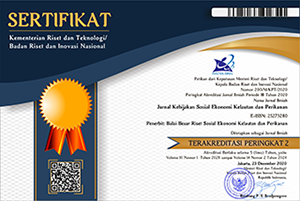
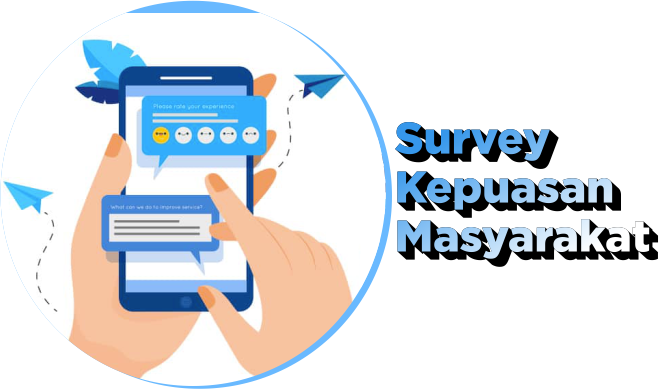
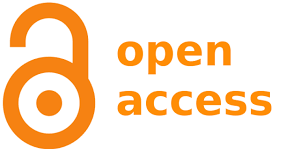





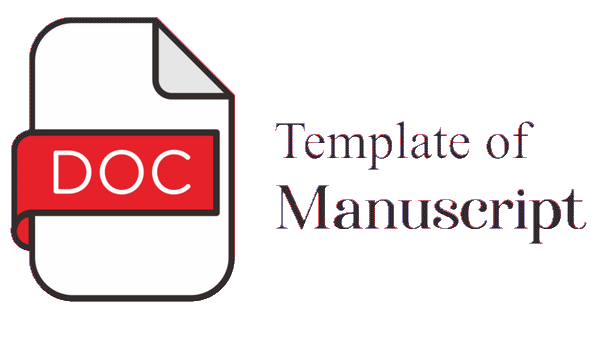
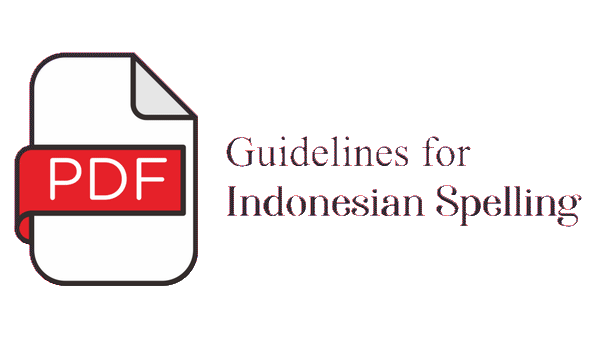
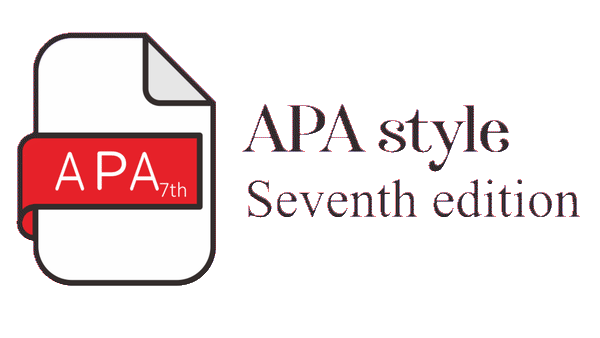


3.png)

